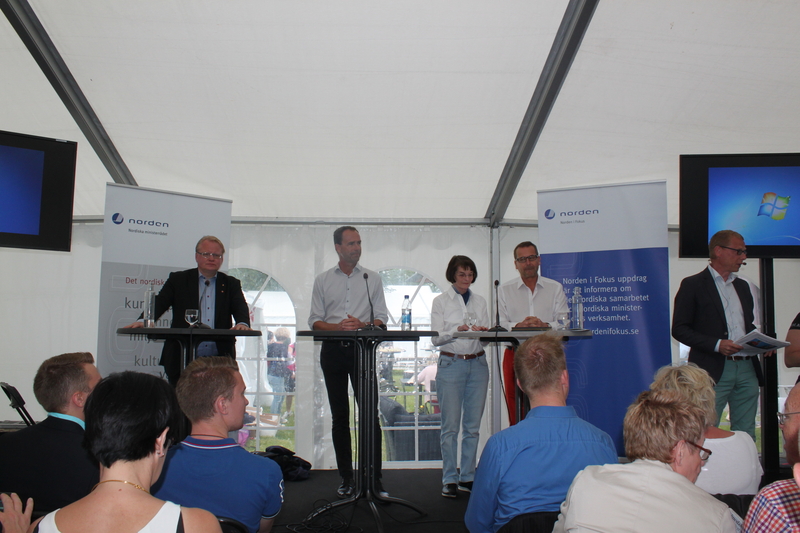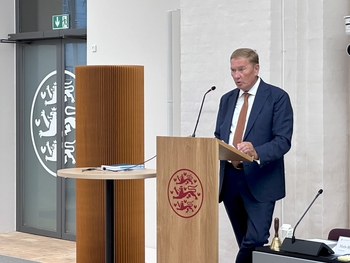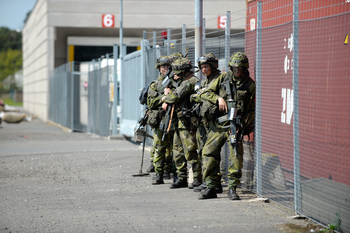Nordic defence debate: “Finland trusts Sweden implicitly”

A packed Nordic tent played host to a lively and at times heated debate on Nordic defence co-operation, and Fenno-Swedish co-operation in particular. All four members of the panel agreed that the co-operation and its deepening are positive, but that there are differences of opinion regarding how this co-operation should be structured in practice and what specifically it should address.
Minister for Defence Peter Hultqvist of the Swedish Social Democratic Party stressed that the co-operative relationship with Finland is very much a serious and concrete one.
“It’s about engineering something tangible – not something vague,” Hultqvist said, who is also chairman of Nordefo, the Nordic Defence Co-operation.
Democratic deficit in Swedish security policy
Allan Widman of the Swedish Liberal People’s Party and chairman of the Parliamentary Defence Committee called for more information about the government’s plans for Swedish security policy and co-operation with Finland. He felt that the government was not painting a true picture of reality.
“We have a democratic deficit in Swedish security policy. Our politicians don’t dare describe reality as it is.
Widman also demanded further details and information on Fenno-Swedish co-operation, with particular reference to the fact that co-operation is also intended to cover support and assistance in the event of conflict or war. He received flank support from Eva Haldén, a former lecturer at the Swedish Defence University.
We have a democratic deficit in Swedish security policy. Our politicians don’t dare describe reality as it is.But Hultqvist was resolute in refuting the demands, saying that it was inconceivable that Sweden should have to reveal every detail about its defence strategies to its “eastern neighbour”, i.e. Russia.
Haldén, who has carried out research into military co-operation, said that working together militarily is not without its complications. She believes that it is of the utmost importance not to do the same things together, but instead to work on areas that complement one another.
The Finnish Ambassador in Stockholm, Jarmo Viinanen, who was also a member of the panel, gave assurances that there is very strong support in Finland for defence co-operation with Sweden. Viinanen also said that there is no “limit” to this co-operation, and neither he nor Hultqvist would admit whether this could involve a possible defence alliance in the future.
To those who speculated that Finland does not believe Sweden would assist in the event of a conflict, the ambassador’s message was clear:
“Finland trusts Sweden implicitly to help in the event of a crisis.”
The debate took place in the midst of the increasingly tense security situation around the Baltic Sea and an increasingly aggressive Russia.
“Right now, the wall between peace and conflict is paper thin, even in our neighbouring regions,” Widman said.
A united Nordic Region
Hultqvist stressed that Fenno-Swedish and Nordic co-operation gives a clear signal to Russia and the world that the Nordic Region is united.
But NATO membership is not on the cards for either Sweden or Finland, despite Finland saying that it has the “option” of membership. Recently there have once again been signals from the east that Russia does not take kindly to Swedish and Finnish membership of NATO. Yet both Hultqvist and Viinanen gave assurances that their countries will make their own defence policy decisions independently of Russia.
“Sweden defines its own defence model regardless of how Russia perceives the situation,” Hultqvist said.
The debate was organised by The Nordic Region in Focus, the Nordic Council of Ministers’ information office in Stockholm.


